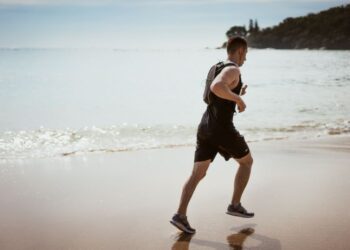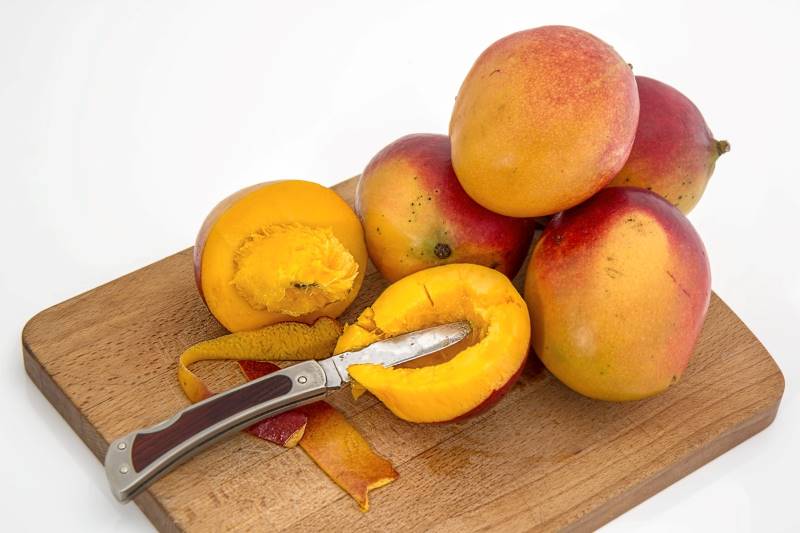I would advise everyone to drink more water throughout the day. Many of us are simply not drinking enough, but what water should we consume daily? Hydration is the keystone to good health, and studies suggest that the average Briton consumes less than one glass of water per day.
Dehydration is a cause of frequent headaches, dry skin, slowed weight loss, dizziness, fatigue, and inattention, among others. Therefore, it is crucial to determine how much water we require to perform our jobs efficiently.

Our body comprises around 60% water, so it is only natural to maintain this optimal level up, considering any water loss or additional drinking water during the day. Water is the primary medium used for biochemical reactions inside cells and is vital to maintaining a healthy blood supply and the heart’s overall health.
Research has revealed some shocking reports that around 48% of water consumed throughout the day is from fizzy drinks, sugary juices, and 18% from food! I am sure this number will not be too far off from what is happening in the UK. Still, the most worrying aspect of the issue is that infant kids, those suffering from chronic illness, and older people are more in danger of becoming dehydrated.
It is due to a range of reasons, but it’s crucial to recognize that drinking water as a service isn’t embraced enough in various places where it is required to be. Schools, hospitals, gyms Do you find drinking water? It is possible to find the possibility of a vending machine selling more sugar-free items for less than the cost of a bottle of water. This absence of portable options implies that we have to carry water everywhere.
How is it that water has become so crucial?
Our bodies are made up mainly of water. It’s therefore logical that every part of our body depends on its ability to perform its task effectively. Cells, Organs, and Tissues require water to maintain the body’s temperature and keep certain regions moist, for instance, our eyes. These are just a handful of the principal elements and mechanisms that are affected, but water is also oil for the spine, which protects joints. Therefore, it’s essential to drink plenty of water.
If we’re drinking enough water, we’ll lose it quickly through sweating and urine. This is essential to eliminate contaminants from the body and prevent getting sick. Water loss is usually caused by diarrhea, vomiting, and sweating, particularly when we suffer from a fever. In addition, the liver and kidneys require water to fight infection; therefore, make sure you replenish in the event of illness.
How much water do we need to consume?
Consider your weight and the amount of physical activity you perform each day as you consider the amount of water you require. As a rule of thumb, it is possible to make this calculation. The amount of water (in Liters) to drink every day equals Your Body Weight (in Kg) multiplied by 0.033. If, for instance, you weigh 60 kg, then you need to drink around 2 liters of water each daily. At 90kg, you’ll drink three Liters of drinking water. So all you have to do is multiply 0.033 by your weight in kilograms.
If you’re a highly active person, you should aim for a higher volume. I suggest 1.5 liters daily for all active people and increase this in line with your schedule. If you go to the gym, be aware that is the additional water you need to rehydrate.
Urine has been a valuable method to gauge the amount of water we’re drinking since the very beginnings of medical science. The color, scent, and density of the urine provide a wealth of information about our hydration levels, aside from the general state of our overall health.
What food items are water-rich?
Watermelon: It’s not a surprise that the fruit is composed of 92% water, but its calcium, salt, and magnesium make it perfect for rehydration. The summer staple is an excellent food source of Potassium, Vitamin A, and Vitamin C.
Celery: The stalks contain around 95% water. They are fiber-rich and high in minerals like potassium as well as Vitamin K.
Cucumbers: Made up of 96 percent water, cucumbers contain absolutely no saturated fats or cholesterol. They are also an excellent source of Vitamin K, B6, and iron.
Strawberries are 92 percent water (the highest of any fruit) and a source of Vitamin C and fiber.
Lettuce: An iceberg salad might be 96% water. However, it’s not recognized for anything else, if anything, in the area of nutrition.
Coconut Water: Unlike labeled sports drinks, Coconut Water is low in carbohydrates and is an excellent potential source of potassium. The unsweetened versions can be extremely hydrating. Studies have shown that this all-natural beverage efficiently rehydrates people after exercise. If you are doing more vigorous sweat sessions, water is equally effective.











